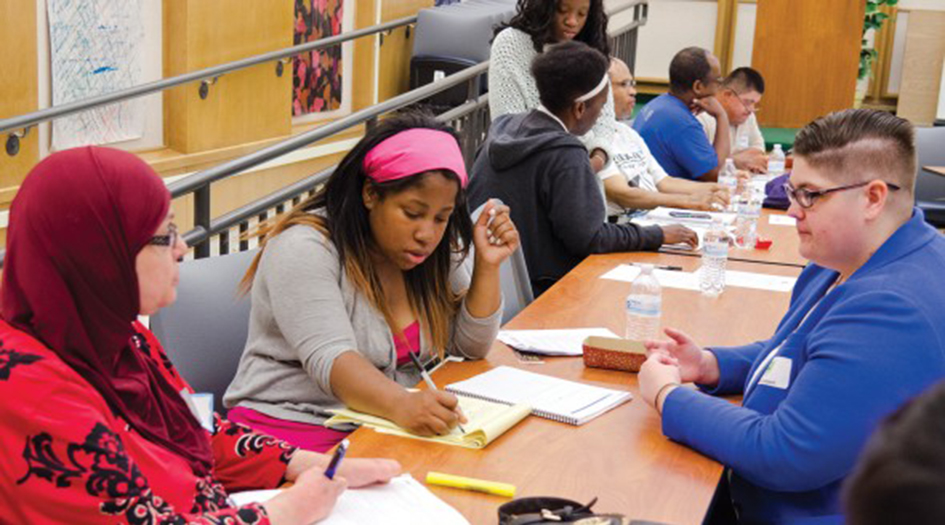Helping entrepreneurs who have disabilities make dreams a reality

Introduction
When Laura Martinez first told people about her aspirations of becoming a chef and opening a restaurant, they weren’t supportive.
“They’d say, ‘There’s no way you’re going to make it,’” Martinez recalled. “They said, ‘Blind people don’t do that,’ and ‘If you work in a grocery store, that’s a big success.’
“But I’m as capable as you are. I’m a chef. I want to cook.”
For a long time, she struggled to find the resources and help that she needed. From issues with grants to frustrations with service providers, the road to make her dreams a reality wasn’t easy, she said. “It’s like you have to draw blood or something. It shouldn’t be like that.”
Martinez now runs La Diosa, Spanish for “the goddess.” The North Side restaurant serves Mexican food with a French influence. She’s the first blind chef in the country to open her own restaurant. Still, her fight is far from over.
“I’m still struggling to keep the place going,” she said.
Her story of facing challenges far more difficult than other entrepreneurs who don’t have disabilities is not uncommon.
“People with disabilities in the United States are almost twice as likely to be self-employed than those who don’t have disabilities,” said Maija Renko, associate professor of managerial studies.
SarahParker-Harris and Maija Renko; disabilities
In 2010, Renko began a collaboration with Sarah Parker Harris, professor of disability and human development, to begin a pilot program called Participation Through Innovation, which led to a second collaboration, the Chicagoland Entrepreneurship Education for People with Disabilities (CEED). The effort, funded by a two-year, $300,000 grant by the Coleman Foundation in 2014, provides support for entrepreneurs with disabilities.
“As we looked at what was existing in the disability employment area as well as entrepreneurship, we realized there is physically no communication between the two disciplines,” said Kate Caldwell, the project coordinator for Participation Through Innovation. Caldwell now leads CEED’s training sessions as a post-doctoral fellow.
“So people with disabilities don’t have the same opportunities or access to critical information and resources in order to pursue entrepreneurship on the same footing as everybody else.”
Together, Renko, Harris, Caldwell and their multidisciplinary team developed operational definitions, conducted literature reviews and identified key barriers that social entrepreneurs with disabilities experienced.
“We found that there was a real need and desire for good information, resources and tools to actually make [entrepreneurship] a viable employment opportunity [for people with disabilities],” Caldwell said.